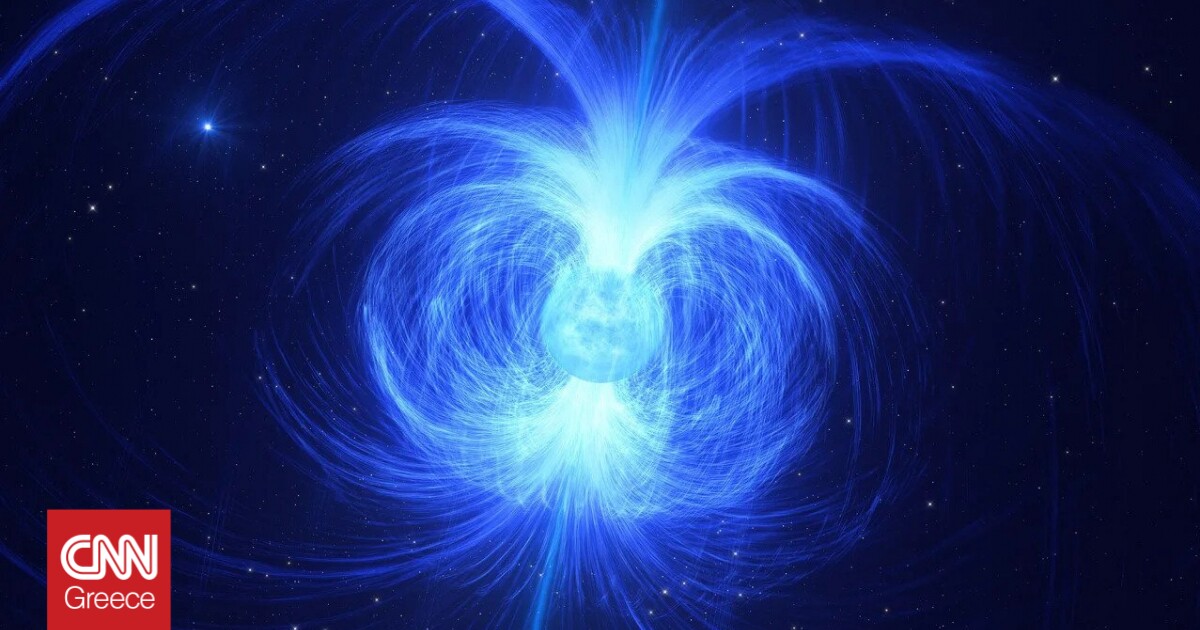
the magnetars (magnets) They are among the strangest and most mysterious things in the universe, while playing sports Trillions of times greater than Earth’s magnetic attraction or by anyone magnet man made.
Scientists are not yet sure exactly how these things form. But one A unique star rich in helium It may hold some answers located 3,000 light-years away, according to a study published this week in the journal Sciences.
The researchers claim that the star’s puzzling behavior cannot be explained by conventional models. But this can be explained by magnetic fields – fields so strong that they have earned their nickname Most magnetars ever recordedAnd a new astronomical term: “Massive helium magnetar”.
Now, scientists suspect that the star will one day die by one Supernova explosion. It could be the result of this explosion The birth of a magnetar – for a dead star that would have a magnetic pull billions of times stronger than the current star, according to the study.
This gives at least one answer to the question of how magnetars are formed. The study authors note that there may be other approaches. But it is one A great step to unlock the mysteries of magnetarswhich has preoccupied scholars for decades.
The birth of a magnetar
The massive helium magnetar at the center of the study is part of it For a two-star system called HD 45166. The dominant star within the system became his obsession Tomer Cinarlead author of the study and an astronomer at the University of Amsterdam.
We’ve never seen such stars because Hard to spot – Except for this, Senard said of HD 45166.
HD 45166 appears Wolf Rite star (Wolf-Rayet), a stage that very large stars go through before they explode to form neutron stars or black holes. But the star is much less massive than the Wolf-Rayet model.
“It’s basically an organism that defies our models and our theories,” Senard told CNNi.
Senard thought that magnetic fields could be the reason the star looks like a wolf-right but has much less mass. To study it, he had access to Canada-France-Hawaii Telescopewhich is located in Hawaii and can detect and measure magnetic fields.
The results were amazing. Found that the star was 43,000 gauss magnetic fieldthe moment that Earth’s magnetic field is about 0.5 gauss.
Researchers believe that the magnetic field of this star It came from merging with another star. The two-star system once contained three stars, and one of the two stars swallowed up the other two, forming a highly magnetic core.
From supernova to magnet
The researchers estimate that HD 45166 will explode in a supernova, in about a million years.
This explosion will then create a neutron starwhich is what happens when protons and electrons in the center of a star collapse and form neutrons.
Scientists already know that approx 10% of neutron stars are also magnetars. But they did not know what contributed to their creation.
And the answer is this Perfect concoction: A star that forms a highly magnetic core by merging with another star, may later explode and become a neutron star with all the characteristics of a magnetar.
Of course, researchers will never be able to notice formation of this potential magnetbecause HD 45166 is still about a million years away from the explosion.
Existing astronomical instruments allow astronomers to observe Hundreds or even thousands of supernovae every nightAccording to Cinar. But these explosions occur so far away – millions or even billions of light years away – that it is very difficult to say exactly what they leave behind.
Senard said the ideal would be to observe the formation of a magnetar inside our galaxy. But there is, on average, Only one supernova approaches us every 100 years. Even then, there is only a 10% chance that the result is a neutron star that is also a magnetar. “If we lived 1000 yearsMaybe we’ll see one,” Senard jokes.
With information from: Scientists reveal the mysteries of magnetars, the most magnetic objects in the universe By Jackie Wattles, CNN

“Avid problem solver. Extreme social media junkie. Beer buff. Coffee guru. Internet geek. Travel ninja.”





More Stories
In Greece Porsche 911 50th Anniversary – How much does it cost?
PS Plus: With a free Harry Potter game, the new season begins on the service
Sony set to unveil PS5 Pro before holiday season – Playstation